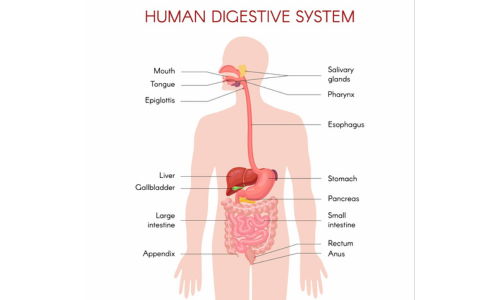7 Tips for Optimizing Digestive Health
June 15, 2023

We've all experienced an upset stomach, heartburn, constipation, or diarrhea from time to time. Whether these things are brought on by a virus, an allergy, or simply not drinking enough water or getting enough nutrients, all of these things share a common connection - the digestive system. Experiencing symptoms of indigestion occasionally is normal and is typically not cause for alarm. Sometimes all it takes is simply increasing your water intake, starting a probiotic, or taking an OTC remedy to begin to see relief for the occasional bout of digestive discomfort.
Many digestive issues are temporary and intermittent. But there are some that are genetic or stem from the immune system, such as Irritable Bowel Syndrome (IBS), Inflammatory Bowel Disease (IBD), and Celiac disease. For individuals with these types of ongoing digestive issues, there is no quick fix, but there are ways to treat and manage symptoms. If you have digestive issues that persist and do not go away with diet change or OTC remedies, then you should speak with your primary care provider to explore them more.
Our digestive system is complex. In addition to genes and situational factors such as what and how we eat, digestive issues can also stem simply from stress. Whether it’s chronic stress issues such as anxiety or an out-of-the-blue spike of stress, our bodies are sensitive and atune to our mental well being. When stress and cortisol spike and run rampant in the body, the impacts can stem as far as our digestive systems. So, in addition to eating well, it’s important that we also find ways to manage stress and keep our minds well.

Let’s step back a little bit and discuss the process of digestion and the parts of our body that play a role. Digestion is the process of the body breaking down consumed food and liquids into their chemical components (carbohydrates, fats, and proteins, etc.) so that they can be absorbed as nutrients. These nutrients, in turn, allow the body to carry out functions such as energy production, cellular production, and cellular repair. When the body is unable to receive and utilize essential nutrients from the foods we eat - whether that’s because we’re not eating enough of the right foods or whether it's a condition that prevents proper nutrient absorption - this is when problems can start to arise.
When it comes to the active process of digestion, everything starts in the mouth and works its way down from there. Food enters the mouth where it is chewed and mixed with saliva before beginning its journey down the esophagus towards the stomach (this is where digestion really ramps up). Once through the stomach, food enters the small intestine to be further broken down. Food that cannot be broken down for nutrient assimilation into the bloodstream moves into the large intestine where gut bacteria feed off of the remnants. Any remaining water is then soaked up by the walls of the large intestine before what’s remaining is expelled from the body.
Now that we know what digestion is, how the body’s involved, and some common ailments that can plague unbalanced guts, we’re going to share with you 7 of our best tips for maintaining a healthy digestive system so you can live life healthier:
- Avoid smoking, excessive caffeine, and excessive alcohol. Limiting these things can help to reduce, in particular, the development of ulcers and heartburn.
- Maintain a healthy weight. A body at a healthy weight is a body whose organs are under less stress to function optimally. Similar to plants, the better our environment is, the better we’ll be able to grow. We aren't suggesting that if you aren't yet at a healthy weight, then you can't have a healthy digestive system. Rather, the better our condition and environment, the better our bodies are able to perform.

- Eat a balanced, routine diet filled with more fresh, whole foods and fewer processed foods. In particular:
- Eat more fiber. The best sources of fiber come from whole grains, vegetables, fruits, and legumes. Fiber is especially important for keeping food moving through the digestive tract and can help you reduce your chances of developing constipation, diverticulitis, hemorrhoids, and other digestive problems. Bonus: because fiber promotes regularity, it can also help you maintain a healthy weight!
- Limit foods that are high in fat. A diet with too much fat (especially unhealthy fats) can slow down the digestive process and lead to constipation. Stick to healthy fats for the best overall benefit to health and nutrition. Choose leaner cuts of meat when possible (leaner meats have less fat).
- Try to maintain a similar eating schedule from day to day. Routine is not a bad thing in general, and certainly not for our bodies either!
- Exercise regularly. If you can exercise daily, then exercise daily. If that’s simply not in your schedule or abilities right now, then that’s perfectly fine, too! Do what you can. When it comes to moving our bodies, even a little bit is better than none at all. Pro Tip: think outside the box when it comes to movement! Exercise isn’t defined by a gym membership or participating in group classes. Small, simple changes can add up to big improvements: take the stairs instead of the elevator, park a little further back than you normally do, make time for a standing or short walking break each hour, take the “long way” to your kid's bus stop this afternoon, etc. For more creative ways to seamlessly incorporate movement into your daily routine, check out our “Exercise Anywhere” blog!
- Practice stress reduction techniques such as deep breathing, yoga, walking, reading a book, listening to a podcast or music, and any other activities that help you breathe a little easier and worry a little less. Pro Tip: to maximize the benefits of stress reduction activities, try to do them daily or routinely instead of “as needed” or only when you’re feeling stressed. There’s nothing wrong with addressing stress in the moment, but if you really want to start to feel a lasting difference, try to destress regularly - and what you might start to find is certain stressors no longer creep up as often or as loudly as they once did!
- Incorporate more probiotics and prebiotics into your diet. Probiotics are the same kinds of healthy bacteria that are already naturally present in your gut. Low-fat yogurt and fermented foods are two food-based sources of probiotics. Supplementing with a probiotic is another way that you can introduce more probiotics into your diet. You might see supplements for something called prebiotics, and these can be beneficial to our bodies, too! Prebiotics act as the food for probiotics and help support a healthy balance of good bacteria in the digestive tract. Prebiotics, like probiotics, can be found in supplements and superfood mixes but they are also found naturally in a variety of foods like bananas, onions, oats, and legumes.
- Drink plenty of water. When it comes to tips on "how to live healthier" it always seems like "drink more water" can always be found on it. And that's because it's important and it works! Not only does water play a huge role in overall hydration, but water is pulled into the colon by fiber to create softer, bulkier stools that pass through the body with greater ease. Bottom line: you can’t go wrong by properly hydrating your body on a daily basis!
While the digestive system is large and complex, there are a variety of ways that we can support out bodies to promote regular digestion. Whether that's excercising more, taking supplements that support healthy digestion, upping your water intake, or starting a new daily meditation routine - all of these things can be beneficial. If you're not sure where to start, we suggest starting as small as you need to in order to be intentional about it. If all 7 of these things are too many at once, then it's perfectly fine to pick just one or two and focus on those for as long as you need to solidify them as a new, healthy habit. After all, progress, not perfection. Simply put: if you’re trying, then you’re already on the right track. Keep at it, and before you even know it, you’ll start to feel the difference that a healthier lifestyle can make!
This information contained in this blog does not constitute medical advice and is not designed to replace the function of a doctor or healthcare provider. Always consult your physician before implementing new diets and supplements into your lifestyle.